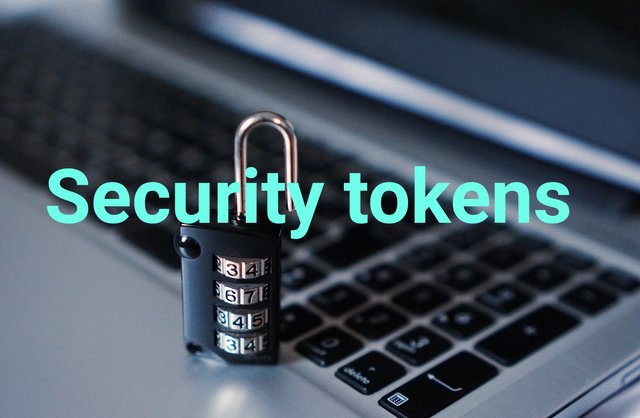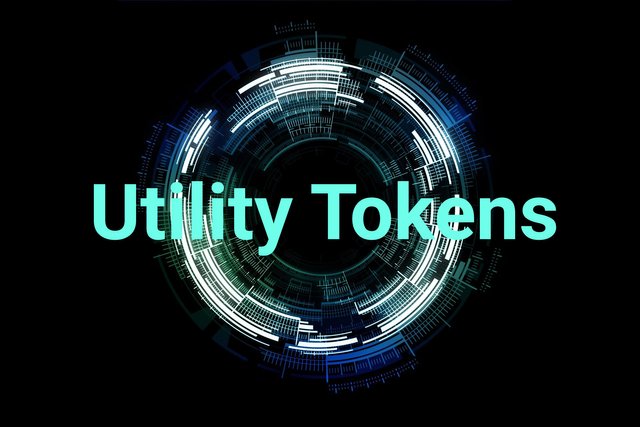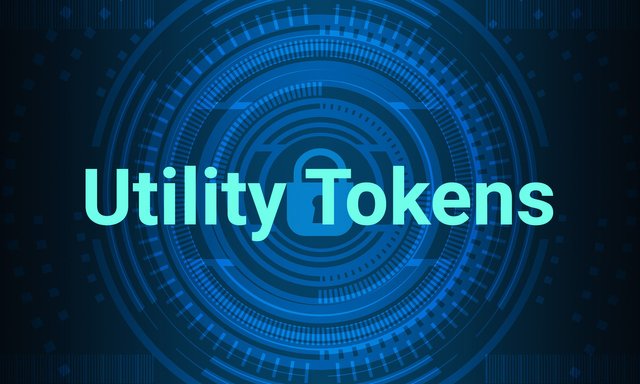Crypto Academy Week 10 - Homework Post for Professor @pelon53 About Tokens
A security token is a unique token issued on a licensed or unauthorized blockchain, which represents a stake in an external asset or company. Entities such as governments and businesses can issue security tokens that have the same purpose as stocks, bonds, and other equities.
Token vs. Cryptocurrency Coins
Cryptocurrency coins like Bitcoin, for example, can be platform independent. Cryptocurrency coins can be used as a type of currency outside of the original system. On the other hand, tokens like DAI and LINK exist on a specific platform - Ethereum, in this case. They are implemented with the help of smart contracts, and take advantage of public infrastructure.
Security Tokens represent utility or security belonging to a company and are often distributed to investors during a public sale known as Initial Coin Offering (ICO) for utility tokens, and (STO) Security Token Offerings.
Security Tokens are tokens that are distributed to investors through a Security Token Offering (STO). Crypto tokens that share profits, pay interest, pay dividends or invest in other assets or tokens to generate profits for token holders are considered security tokens. Because they provide rights similar to financial instruments, they are subject to financial and capital market regulations.
To put it simply, tokens are considered security when there is an expectation of profiting from someone else's efforts. These are investment contracts that represent legal ownership of digital or physical assets or rights, which resemble the rights of any financial instrument. If certain regulations are not followed by the STO, this can result in penalties and even halt project development.
Benefits of Security Tokens?
However, when all the rules and regulations are followed, startups can benefit greatly. One of the advantages is that the company can offer a token as a digital representation of its shares. Benefits for security token holders include:
Able to store token in wallet that has security
Can be used for loan guarantees
And they can also trade their tokens for other assets
Redefining Ownership
Security tokens take on a new meaning to the term "possession". Because of these tokens, assets, such as a vineyard or real estate, can be divided into several pieces and then sold to investors. In detail, instead of investing and owning a complex real estate project, which may be too expensive for many people, 100 people can own a fraction of it and receive a proportionate return.
Utility Tokens Also known as user tokens or application coins, utility tokens are the most popular type of token and provide users with future access to the company's products or services. Utility tokens are not intended as a means of investment, and investors are discouraged from participating in a public sale if the sole purpose is to make a profit.
How Do Utility Tokens Work?
The company can decide to issue utility tokens and sell digital coupons for the products or services it develops.
Utility tokens can also:
Give token holder rights to use the network
Helps in building the internal economy in the system
The token holder permits to utilize the network by voting. For example, token holders can lock their tokens (stake) on the network, thereby securing the right to vote on the overall well-being of the network.
Ethereum's ERC20 standard is the basis of most utility tokens. However, many other platforms have emerged from the start, and serve as the underlying infrastructure framework for issuing tokens, such as Binance Chain or EOS. Filecoin is one example. Through the token sale, the project team raised $ 257 million. The token holder is given access to the Filecoin decentralized cloud storage platform.
Usually, there is an upper limit on token availability which can result in the token's value going up due to the simple supply-demand rule: A constant increase in demand with everything else will cause the token price to be higher. So even though utility tokens are not created for investment purposes, people can still invest in them with the hope that the value of the tokens will increase over time. Projects also choose a token inflation model, emit tokens continuously, and some don't limit their supply at all, for whatever reason. Therefore, the company's token economy design plays an important role and has the power to influence investment decisions.
What do security and utility tokens have in common?
Both can increase or decrease in value depending on market demand;
They are not cryptocurrencies in the sense that they are not created for direct commercial use such as buying or selling external services and products. Simply put, they are not worth fiat money because they are not standalone instruments of payment;
Utility tokens are often mistakenly promoted as investments, whereas security tokens can be mistakenly considered utility tokens.
Equity tokens are a type of security token that functions as a traditional stock, either in the underlying company, third party assets or businesses and takes its value from the success of a company or from the failure of a company.
As with any share purchase, shareholders literally own a certain percentage of the total company. They are also entitled to a portion of the company's profits and the right to choose its future.
One of the main differences between both token equity and traditional stock is the method of recording ownership. Traditional shares are logged to the database and can be accompanied by a paper certificate. Equity tokens record the company's ownership on the blockchain.
Share ownership class
Equity tokens, as part of company ownership, can be divided into several classes. By default, all equity shares in a company are unclassified and are referred to as "common stock". Common stock divides income and voting rights equally,
Example: Suppose that a company issues 100 equity tokens, each token entitling the holder to equal 1 percent of revenue and 1 in 100 votes.
Ten tokens will give the holder the right to 10 percent of the revenue and 10 votes, and so on.
Apart from common stock, the common types are preferred stock, non-voting stock, Class A stock, Class B stock, etc. (Sometimes called "alphabetical shares"), and shares with additional voting rights (sometimes called "management shares"). The class sharing system is very flexible.
Considering Class A and Class B stocks, this classification usually changes the voting rights of the shares in the company.
Example: Holding a Class-A equity token can entitle the holder to 10 votes per token, while a Class-B token can have a 5 vote share and so on.
A company can classify as many shares as it chooses, including some that do not get any votes at all.
A company may also assign to share a class of what is called a "preferential dividend". These receive their share of the company's profits in a different amount from other corporate investors.
Equity token buyers need to be aware of these issues and in particular the potential for preferential dividends. While it is not common, this means that whoever holds preferential dividends will not only receive a larger percentage of the company's profits but they will also get the dividend payout first. If a company that issues such equity does not record large dividends in a given quarter, the common equity holder will end up getting nothing.
If you want to understand what makes tokens valuable, we need to understand how assets are categorized and why this is important.
Security Tokens, Utility Tokens, and Third Equity tokens have their risks, pros and cons. Nonetheless, considerable care and analysis should be given to differentiating the two, especially if a retail investor is considering investing in an unregulated token sale. In such cases, funds can become stuck or lost if the project is abandoned or simply fails. In addition, the two tokens usually have different purposes, which is why their uses cannot be directly compared and need to be assessed individually.
While each token issuer may have various reasons to believe that their token has no potential legal impact, there is a big difference between confidence and confirmation. And as always, do your own research don't be too quick to invest in projects you don't understand. That is all and thank you.
Cc
@pelon53



Hola @fikar1213
Gracias por participar en la Academia Cripto de Steemit.
Cuida la coherencia del contenido.
Thank you prof @imagen for the advice and assessment
!invest_vote
@meins0815 denkt du hast ein Vote durch @investinthefutur verdient!
@meins0815 thinks you have earned a vote of @investinthefutur !